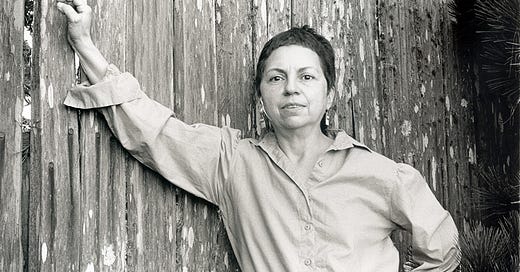Not all leaders stand on stages. Some lead by writing what no one else dares to say—and in doing so, create entirely new paths for others to walk.
Gloria Anzaldúa didn’t fit any of the dominant leadership moulds. She was a queer, feminist, and Mexican-American writer who described herself as Chicana. She didn’t just challenge the status quo—she lived in the spaces it tried to ignore. Her life and work centred on what she called the Borderlands—not just the physical divide between Mexico and the U.S., but the emotional, cultural, spiritual, and linguistic spaces where identities intersect and blur.
In her seminal book, Borderlands/La Frontera, she gave voice to those who live in-between. Those who are not “this” or “that,” but both. Or neither. Or something entirely their own.
Through her writing, Anzaldúa reframed what it means to lead. She showed that identity isn’t a weakness—it’s a source of power. That speaking multiple languages—literal and metaphorical—is not confusion, but clarity. That occupying margins is not erasure, but a place of vision.
She led through the rawness of self-definition. She refused to be simplified, and in doing so, she gave others the courage to resist simplification too.
📌 Anzaldúa’s legacy reminds us:
Inclusive leadership welcomes complexity.
Naming yourself is a radical act.
Real power can emerge from the margins—not just the centre.
Her voice continues to echo in feminist, queer, and decolonial movements around the world. Not because she was handed power—but because she wrote, lived, and created spaces that didn’t exist until she made them.
🔍 In this series, we’re highlighting leaders like Gloria Anzaldúa who weren’t granted power, but built influence through ideas, activism, and presence.
Let’s continue redefining what inclusive leadership really means.
#LeadersWhoRedefinedInfluence #InclusiveLeadership #AcceptanceWithoutUnderstanding #LeadershipWithoutTitles #BorderlandsTheory #GloriaAnzaldúa #Intersectionality





